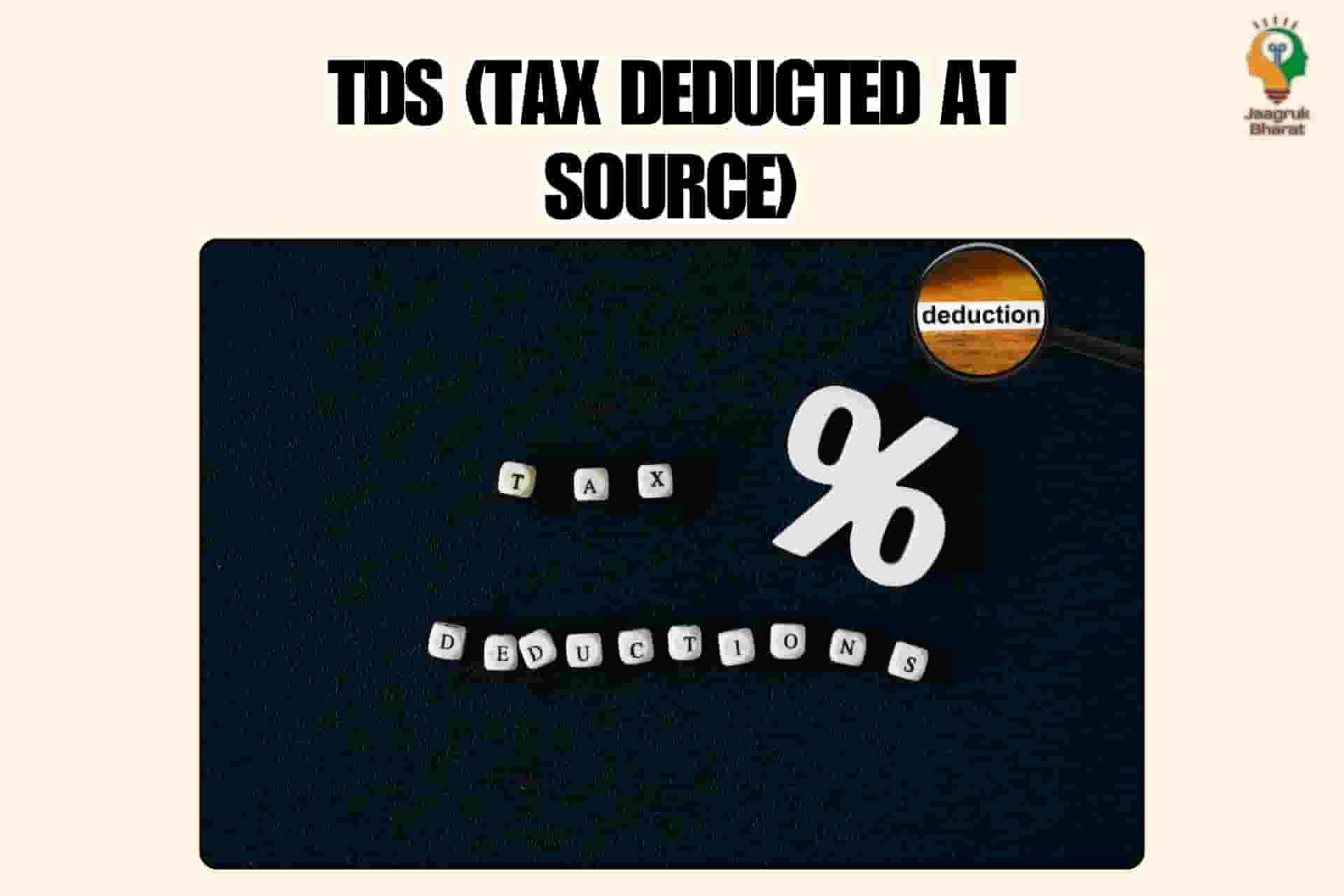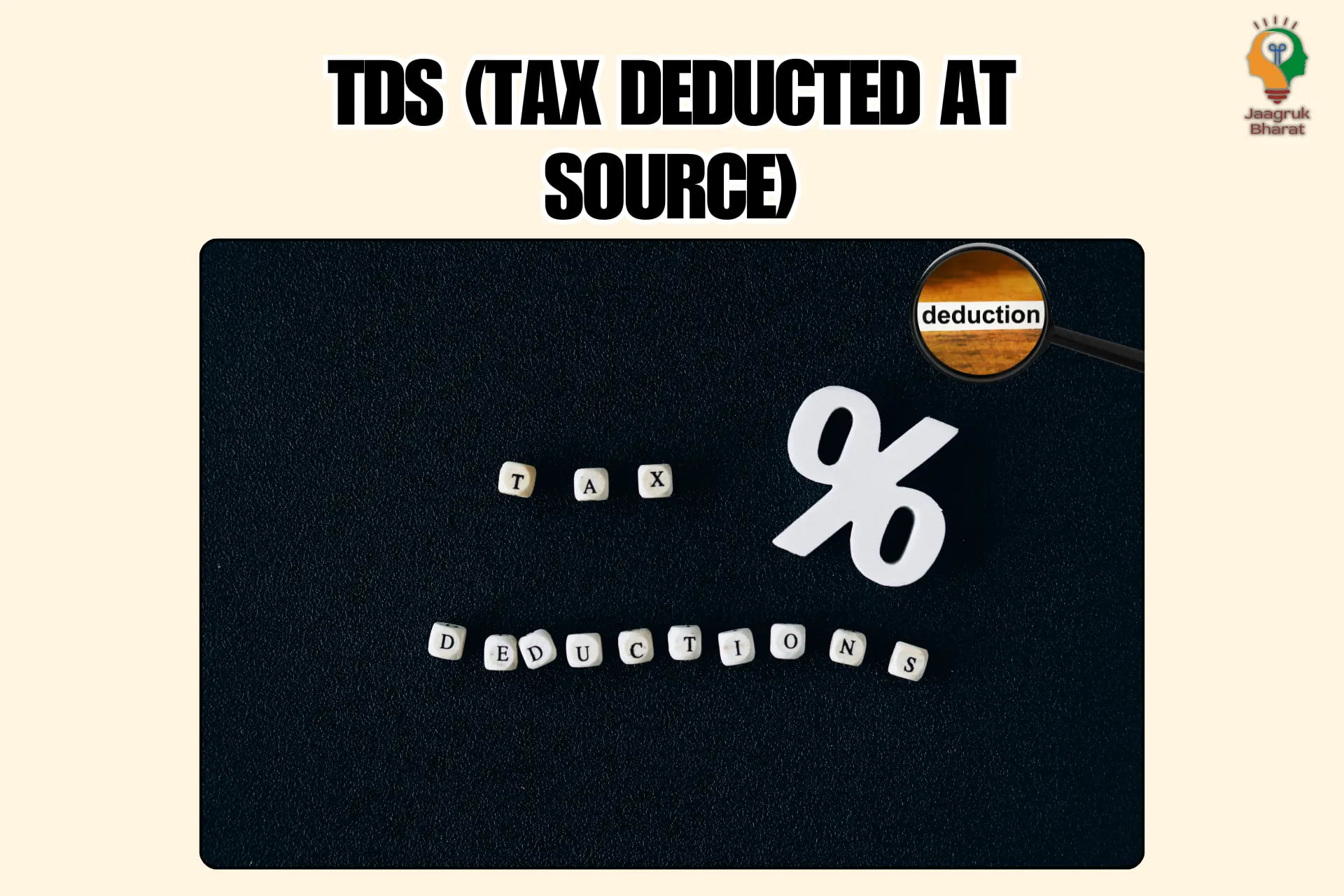TDS: Things Every Taxpayer Should Know!
Updated: 13-10-2025 at 3:30 PM
2k


🚀
10M+
Reach – Join the
Movement!
❓
50K+
Queries Answered
- Ask Yours Today!
🔥
1.5L+
Users Benefiting
- Why Not You?
🚀
10M+
Reach – Join the
Movement!
❓
50K+
Queries Answered
- Ask Yours Today!
🔥
1.5L+
Users Benefiting
- Why Not You?
Banks deduct TDS when a person’s interest income is more than ₹40,000. But if a person’s income is below the taxable limit, they can submit Form 15G and 15H to request that any TDS payment under Section 194A of the Income Tax Act be exempted. Let’s understand this TDS full form, how it works, and how it can save you money.
The latest News On TDS
According to the latest update from the TDS website (Income Tax Department), taxpayers can now deposit TDS online through the new AIS system integrated with TDS login facilities. The government has also simplified compliance for small depositors by allowing them to check their TDS percentage and refund status directly. Additionally, digital tracking features help users perform TDS check instantly through their accounts, reducing manual paperwork.
What Is Tax Deduction At Source?
What is TDS in salary? TDS stands for Tax Deducted at Source, which is the collection of taxes from the income sources of people. It is done by the Income Tax Department of India. The TDS service ensures tax compliance on various income forms such as salary, rent, and interest earned on Fixed Deposits (FDs).
Understanding How TDS Is Deducted
If a person earns ₹1,000 in FD interest, then the bank might deduct ₹100 (10%) as TDS. The person must report the entire ₹1,000 and claim the deducted TDS payment as a credit against tax liability. Some banks provide TDS home advisory support where users can check how much tax was deducted using the TDS check feature available on the official portal.
TDS On Bank FD
-
If the earnings of an individual are more than Rs.40,000, the interest income will be taxable. However, for senior citizens, the taxable interest income has to exceed Rs 50,000.
-
The tax on FD interest is deducted at 10% of the interest income. Users can visit the official TDS website to deposit TDS online or check TDS prices and rates applicable for different financial years.
TDS On NBFC FD
For NBFC (non-bank) FDs, the limit for taxable income on FD interest is ₹5,000. If a person has an interest income higher than ₹5,000 and fails to submit PAN details to their NBFC, the TDS percentage will increase to 20% instead of 10%.
Indian residents pay less TDS compared to NRIs. Indian residents have to pay 10%, whereas NRIs have to pay 30% of the interest income. Both Indian residents and NRIs can submit Form 15G or Form 15H to claim tax exemption on FDs.
Sometimes, people confuse this with TDS water, but in finance, TDS full form refers to Tax Deducted at Source, not Total Dissolved Solids as used in water quality tests.
What Happens If The FD Interest Is Lower Than The Tax Limit?
FD is taxable even if the income is lower than the tax limit, as interest income is considered income from other sources. It is taxable as per the Income Tax Laws.
But if a person’s total income, including interest income, is lower than the tax limit, they can be eligible for a refund of the TDS payment that may have been deducted before. Using the TDS login on the tds website, one can file refund claims or deposit TDS online for the next financial year.
What Are Form 15G And Form 15H?
15G and 15H are documents that declare if a person’s income is below the tax limit. Senior citizens are exempted from paying TDS on interest income on FDs if their total income from investments does not exceed Rs 3,00,000.
A PAN card is compulsory while filling out the forms. Individuals can submit Form 15G and Form 15H to claim a TDS refund on FDs.
Form 15G and 15H are valid for one financial year and, therefore, should be submitted at the beginning of a financial year. This will ensure that the bank or NBFC don’t deduct any TDS.
Difference Between Form 15G And 15H
The difference between the two Forms is that Form 15G is submitted by HUF (Hindu Undivided Family) and individual taxpayers less than 60 years of age, whereas Form 15H is submitted by senior citizens.
Eligibility Criteria For Form 15G
-
Income for the fiscal year must be less than Rs. 2.5 lakhs.
-
Should be an Indian citizen.
-
Below the age of 60 years.
-
HUFs with an annual income of less than ₹2.5 lakh
To download Form 15G, click here, or visit the official TDS website.
Eligibility Criteria For Form 15H
-
Senior citizen above the age of 60 years.
-
Must be an Indian citizen.
-
Annual taxable income must be nil.
To download Form 15H, click here and proceed via TDS login for document submission.
How To Claim TDS On FDs?
If an individual is an Indian Resident and their interest income from FD exceeds Rs 10,000 in a financial year, they can claim a refund on TDS.
-
Register on the Income Tax website.
-
Fill out the Form 15G or Form 15H.
-
Submit it to the bank or NBFC.
These forms help declare whether a person’s total income is below the taxable limit. If accepted, they can avoid a TDS deduction from interest income and simplify tax filing through TDS check tools.
Conclusion
Filling out Form 15G and 15H helps individuals and senior citizens keep all their money without having it deducted for TDS. It is also helpful for retirees who earn mainly from their savings. By submitting these forms to banks or NBFCs, people can ensure they get their complete income without having to claim refunds later, simplifying financial transactions and managing cash flow. Apart from FDs, TDS on sales of property, rent, or services is also applicable under the Income Tax Act. Businesses must deposit TDS online within the due dates to avoid penalties. Through tds service portals, companies can check tds prices, file returns, and manage compliance easily.
Get the latest updates on government schemes and policies with Jaagruk Bharat. Join India's biggest Jaagruk Bharat community. Share your thoughts, questions, and favourite topics with us.
Frequently Asked Questions
0
0
2k
0
0
2k Views
0
No comments available





Our Company
Home
About
T&C
Privacy Policy
Eula
Disclaimer Policy
Code of Ethics
Contact Us
Cancellation & Refund Policy
Categories
Women
Insurance
Finance
Tax
Travel
Transport & Infrastructure
Food
Entertainment
Communication
Government ID Cards
E-commerce
Traffic guidelines
Miscellaneous
Housing and Sanitation
Sports
Startup
Environment and Safety
Education
Agriculture
Social cause
Employment
Disclaimer: Jaagruk Bharat is a private organization offering support for documentation and government scheme access. We are not affiliated with any government body. Official services are available on respective government portals. Our goal is to make processes easier and more accessible for citizens.
All Copyrights are reserved by Jaagruk Bharat